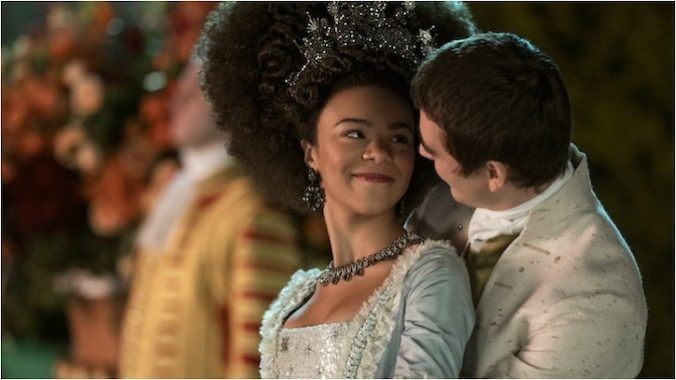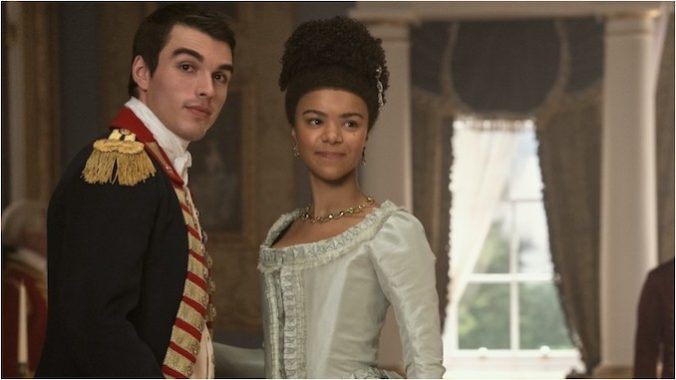Bittersweet and Romantic, Queen Charlotte Is a Bridgerton Prequel That Often Surpasses the Original
Photo Courtesy of Netflix
These days, it’s understandable if the word “prequel” makes you nervous. Film studios, streamers, and television execs always seem to be looking for an easy cash grab when they decide to dig around in the past of popular stories in the name of profit. There’s truly no such thing as a sure thing in the entertainment industry, but for a lot of people who have decision-making power in this space, the promise of a familiar IP, characters whose names viewers have at least partially heard before, and a pre-built universe for creatives to play around in is the next best thing. And sometimes it works—and works well. But for every Andor, there’s a Kenobi; for every Better Call Saul, there’s a Grease: Rise of the Pink Ladies.
So, when the news first broke that Netflix would be expanding the onscreen world of its mega-popular period drama Bridgerton, many people (read: me) were likely more than a bit apprehensive. Sure, Golda Rosheuvel’s Queen Charlotte has always been an entertaining standout in the series’ first two seasons, but was that enough reason to focus an entirely separate show on her story? Particularly when we already know some of the broad strokes of tragedy that will come to touch her life by the time the main series takes place? Could a seemingly throwaway origin story really have anything all that meaningful to say?
Queen Charlotte: A Bridgerton Story not only provides a resoundingly confident yes to all those questions, the prequel series actually manages to provide an important narrative and emotional context for the larger world in which it is set. Deftly weaving an origin story for its titular fan-favorite character through and alongside a present-day tale of love and duty, in which Rosheuvel’s Charlotte attempts to convince her squad of offspring to produce a royal heir, this is a delightful, frothy romp with a deceptively bittersweet center. And unlike the rest of the Bridgerton onscreen universe, this is a story that is willing to wrestle with larger issues than just romance.
-

-

-

-

-

-

-

-

-

-

-

-

-

-

-

-

-

-

-

-

-

-

-

-

-

-

-

-

-

-

-

-

-

-

-

-

-

-

-

-









































